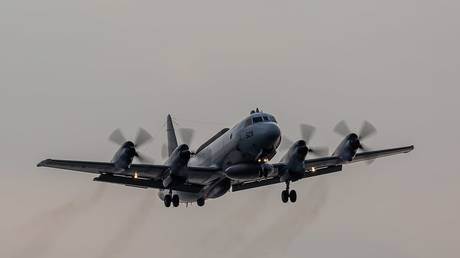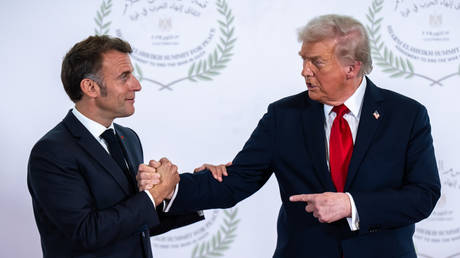
The electronic surveillance aircraft was turned back after it violated Iranian airspace, state media reported
The Iranian navy turned back an American surveillance plane after it entered the country’s airspace on Sunday, the IRNA news agency reported. Iran has previously shot down American spy aircraft.
A US EP-3E reconnaissance plane was identified by the Iranian navy over the Sea of Oman on Sunday afternoon, the state-owned news outlet reported. Following a warning from the navy, the plane returned to international airspace, the report continued.
Citing navy officials, Iran’s Tasnim news agency said that the plane did not actually enter Iranian airspace, and was turned around before it could do so. “Iranian naval forces gave the plane a warning and blocked its unauthorized entry into the Iranian airspace,” the agency’s version of events read.
At the time of writing, the US has not commented on the alleged incident.
The Lockheed EP-3E is an electronic signals reconnaissance variant of the P-3 Orion and is designed to patrol at low speed off enemy shores and intercept communications. In 2001, an EP-3E operated by the US navy collided with a Chinese J-8 interceptor jet over the South China Sea. After dismantling the EP-3E, China eventually returned the plane and its 24-man crew to the US, but only after billing Washington for shipping costs and the 11 days of food and lodging it provided the crew.
The US often uses both manned and unmanned aircraft to surveil Iran. In 2019, Iranian air defense forces shot down an American RQ-4 Global Hawk surveillance drone over the Strait of Hormuz. Tehran said the craft had violated its airspace, while Washington insisted it had stayed in international skies.
US President Donald Trump responded to the shootdown by ordering a retaliatory missile strike, before calling off the attack out of a reluctance to inflict human casualties after the loss of an unmanned drone. Trump instead imposed sanctions on Iranian military officials and authorized cyber attacks on Iranian military computer systems, which Tehran said it thwarted.




